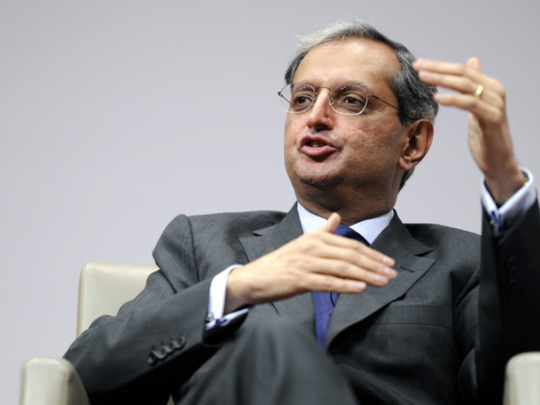
Sydney: Citigroup Chief Executive Officer Vikram Pandit said regulators shouldn’t dictate what banks can sell to clients because such controls risk undermining financial stability and have no clear economic benefit.
Former Citigroup Chairman Sanford “Sandy” Weill said last month banks should be broken up, separating investment banking from lending and deposit-taking. US regulators are also working to complete controls that include a ban on proprietary trading by banks — the so-called Volcker rule.
Speaking on the Australian Broadcasting Corp, Pandit said he supports the “concept” of the Volcker rule — that a bank’s capital should be used for clients. Still, he said dividing Citigroup, the third-biggest US bank, in the manner suggested by Weill would be an “artificial separation” and the New York-based bank must continue to lend as well as tap capital markets for customers.
“Safety and soundness is really important — let’s get the regulations in place,” Pandit said in an interview on Sunday’s Inside Business programme on the Australian Broadcasting Corp. “But we’ve got to stop telling which banks which products they should sell. I don’t know why that is safe for the economy and I’m certainly clear that it’s not good for our clients.”
More than half of Citigroup’s $38 billion (Dh139 billion) revenue in the first six months of 2012 came from the global consumer banking unit, offering products such as Chinese credit cards and Mexican personal loans. The securities and banking unit, which includes trading and investment banking, accounted for $10.7 billion.
‘Less safe’
While Pandit said banks shouldn’t be too big to fail, he said helping clients tap capital markets for funds, rather than rely on loans from Citigroup, allows the company to reduce risk and control the size of its balance sheet. Forcing banks to do one or the other “makes us less safe,” Pandit told Inside Business.
“We have to be in both parts of the business,” said Pandit, who became CEO in 2007. “Some loans and some funds come from us, from our balance sheet, others come from the capital markets.”
Citigroup, which ranks among Wall Street’s five biggest investment banks, almost collapsed in 2008 amid losses tied to subprime mortgages. It took a $45 billion bailout and disposed of other businesses and assets following 2008’s credit crisis.
Citicorp was a commercial bank when it combined in 1998 with Travellers Group, which owned the investment firm Salomon Smith Barney Holdings. The merger went ahead after the repeal of the Depression-era Glass-Steagall Act, which had separated traditional banks from those involved in capital markets. Citigroup spun off Travellers Property Casualty in 2002.











